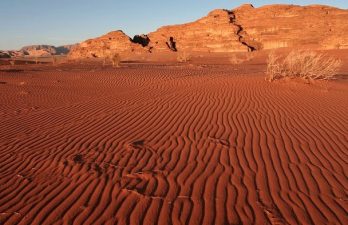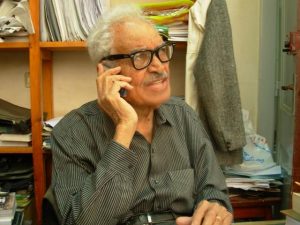 World-renowned Sengalese musician Baaba Maal visits drought victims in Mauritania.
World-renowned Sengalese musician Baaba Maal visits drought victims in Mauritania.
Regardless of criticism or the fact that its narrator was arrested for disorderly conduct in San Diego, the Kony 2012 campaign video that recently “went viral” on social media networks has demonstrated that the masses can be called to action when invisible people from the planet’s underbelly are in need.
Unfortunately, no video exists to convey the desperation of people living in the drought-stricken Sahel region south of the Sahara desert, but Oxfam International warns that 12 million people are facing a severe food crisis due to failed crops, erratic rains, and other factors.
No food to eat
“Some families have almost nothing to eat, and I worry about how they will feed themselves until the next harvest,” said Sengalese musician Babaa Maal during a February visit to Mauritania.
The internationally renowned artist who regularly campaigns to improve the lives of African citizens launched an appeal to the international community to act before the food crisis unfolding in Burkina Faso, Chad, Mali, Mauritania, and Niger reaches emergency status.
“We cannot watch and do nothing while our brothers and sisters in Mauritania are victims of such a crisis. I have been able to see the solutions that are being put in place. We have to support and strengthen them,” Oxfam quoted Maal in a recent press release.
Horn of Africa
Low rainfall, poor harvests, a lack of pasture and rising food prices are among the key factors contributing to the crisis, according to the international aid agency. 700,000 Mauritania residents alone are uncertain where they will receive their next meal.
Last year we watched as millions of people in the Horn of Africa dragged themselves across Ethiopia to seek humanitarian aid at camps in Kenya after a drought crippled the region, but many, including thousands of young children, succumbed to malnutrition and starvation along the way.
But this year, Oxfam International is working ahead to raise the funds to avert the worst case scenario. The non-profit organization began issuing clarion calls in December.
Proactive fundraising
“By investing now in earlier and more cost-effective actions, vulnerable populations can be protected from the worst impacts of the coming crisis at a much lower cost than if we waited,” Oxfam reports.
If their fundraising efforts are successful, Oxfam should be able to help people like Hamila in Maurtinaia, who was grateful just to receive enough money from Oxfam to buy a bag of rice that will feed her five children for several weeks.
“Hamila is among the most vulnerable people in her community but there are many other people who need our help” explained Baaba Maal.
image credit: Oxfam, flickr
More on Drought, Food Insecurity, and Water Shortages:
7 Agricultural Solutions That Will Save the Middle East
Gazan Farmers Struggle With Rising Salinity and Water Shortages
Horn of Africa Famine: A Cautionary Tale for MENA



